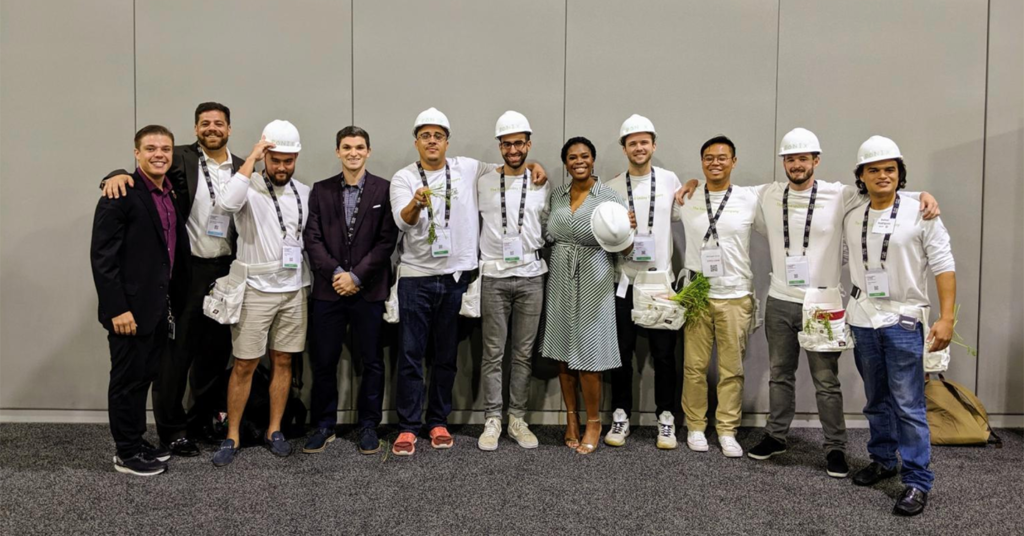
Climate change is posing a significant threat to global food security. All four pillars of food security – availability, access, utilization, and stability – are being affected by extreme weather events caused by climate change. This is leading to a decrease in crop yields, changes in the nutritional quality of food, and rising food prices making it more difficult for vulnerable populations to obtain sufficient food.
Smart City Expo
In September 2019, more than 2,500 individuals attended the first Smart City Expo in Atlanta, which was centered around building smart, sustainable, and equitable cities for the 21st century.
Jasmine Crowe, CEO of GoodrCo, Michael Choi, CEO of Ponix, Mario Cambardella from the City of Atlanta, and Jeffrey Landau, Director of Business Development at Agritecture Consulting, were invited to participate in a panel discussion on urban farming advancements. During the discussion, the panelists were asked to address how Smart Cities in both the public and private sectors can address the challenges that our food system is facing due to climate change and urbanization.
The Problem
In the panel discussion, Michael Choi emphasized the difficulty of meeting the food demands of an additional two million people by 2050 without further damaging the environment. Cities are exploring the option of utilizing local farms to tackle this problem, but the shrinking farming workforce presents a challenge, as the average age of farmers worldwide is currently 66 years old, and there will be a shortfall in the number of farmers for the next generation.
The Solution
During the panel discussion, the panelists identified several significant themes when discussing potential solutions to these challenges. First, they highlighted the importance of implementing sustainable indoor farms in urban areas to provide direct access to fresh produce. Secondly, they noted the advancements in urban farming technology, which allows for improved food security and the ability to operate in a manner that is different from traditional farming. Finally, the panelists emphasized that adopting a plant-based diet is the most effective way to reduce an individual’s environmental impact.
Emerging Thoughts
A recurring theme throughout the panel discussion was the idea of reclassifying food as a utility rather than a commodity. The panelists suggested that by establishing sustainable indoor farms in urban areas, the community could be provided with food in a manner similar to the way a power plant supplies electricity to community members.
The panelists stressed the significance of sustainable indoor farming, urban farming technology, and reclassifying food as a utility to address the challenges of a fast-changing food system, and highlighted the necessity of cooperation between the public and private sectors to develop creative solutions and establish the required infrastructure to prepare for the significant changes that lie ahead.
